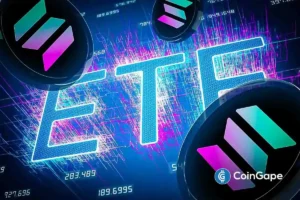Circle’s Ambitious Move to Establish a National Trust Bank
Circle, the company known for its widely-used USDC stablecoin, has taken a significant step in its evolution by applying for a national trust bank charter with the Office of the Comptroller of the Currency (OCC). This strategic move comes as the regulatory landscape for digital assets in the United States continues to solidify, especially with discussions around the GENIUS Act, aimed at establishing guidelines for dollar-backed stablecoins. If approved, Circle’s new entity, the First National Digital Currency Bank, N.A., would not only enhance its regulatory compliance but also allow for streamlined operations across state lines.
Enhancing Regulatory Compliance
The decision to pursue a federally regulated national trust bank charter is a progressive move for Circle, aiming to align its operations with traditional financial regulations. By receiving direct oversight from the OCC, Circle would enhance its credibility and security as it navigates the complex regulatory environment surrounding cryptocurrency. Circle CEO Jeremy Allaire emphasized that this application signifies proactive measures to bolster the infrastructure supporting USDC, stating it aligns with emerging U.S. regulations for dollar-denominated stablecoins.
Streamlining Operations
If granted, the charter would enable Circle to operate without the cumbersome burden of obtaining separate licenses in each state, a challenge that has historically hampered the expansion of many digital asset companies. With this national trust bank status, Circle could efficiently offer regulated digital asset custody services to institutional clients, broadening the scope of its business while ensuring adherence to compliance standards across the U.S.
Competition and Market Positioning
Circle’s move to establish a federally regulated bank would place it in elite company, joining the ranks of other federally chartered institutions such as Paxos and Anchorage, which have already secured similar status to provide crypto-related services nationwide. This aligns Circle with the trend of traditional finance embracing digital assets, further legitimizing cryptocurrencies in the mainstream financial ecosystem.
Anticipating Legislative Changes
The timing of Circle’s application comes as the U.S. government actively discusses legislation designed to provide clearer guidelines for digital assets. The GENIUS Act, which recently passed through the Senate, seeks to create a structured framework for dollar-backed stablecoins. Circle’s proactive application appears to position the company favorably to meet anticipated regulatory requirements set forth by this upcoming legislation, demonstrating its commitment to both innovation and regulatory compliance.
A Step Towards Institutional Trust
As digital currencies continue to gain traction among institutional investors, the ability to offer regulated custody services could significantly enhance Circle’s market appeal. With institutional demand for safe and compliant platforms for digital assets rising, Circle’s new bank would provide a trusted avenue for managing USDC reserves, thus supporting broader adoption of its stablecoin.
Conclusion
Circle’s initiative to establish the First National Digital Currency Bank represents a critical advance in the intersection of cryptocurrency and traditional finance. By securing a national trust bank charter, Circle aims to solidify its position as a leading player in the evolving digital asset landscape while reinforcing its regulatory compliance. As the company prepares for potential legislative frameworks that could reshape the future of digital currencies, its strategic foresight may very well set a precedent in the industry, ultimately supporting the growth and stability of the U.S. dollar in the digital age.
In a rapidly changing financial environment, Circle’s proactive measures are an essential reminder of the necessity of balancing innovation with regulatory stewardship, paving the way for a more integrated future for cryptocurrency in traditional banking systems.

















